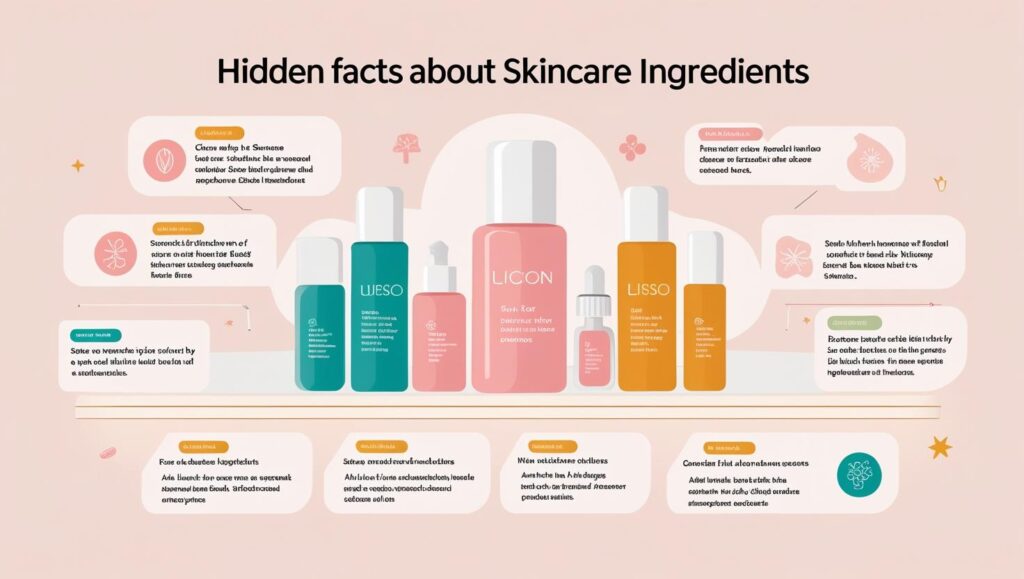introduction
Many beauty brands count on the fact that most consumers don’t understand ingredient labels — and they use that to their advantage. From harmful preservatives masked under friendly names to misleading claims about “safe” formulas, the reality is that not all products are as skin-friendly as they seem. In this article, we’re pulling back the curtain on the skincare ingredients secrets that most beauty brands don’t want you to know. Because when it comes to what you put on your skin every day, knowledge isn’t just power — it’s protection.
Natural”Doesn’t Always Mean Safe
Just because a product contains natural ingredients doesn’t guarantee it’s gentle on the skin. Poison ivy is natural — but you wouldn’t rub it on your face. Similarly, essential oils and plant extracts can irritate sensitive skin if not used in the right concentrations
Fragrance = Hidden Chemicals
Fragrance in skincare is often a mix of dozens of undisclosed chemicals. Brands aren’t required to list every component, meaning that one word — “fragrance” — can hide ingredients that trigger allergies, hormone disruption, or skin sensitivity.
Preservatives: Necessary But Misleading
Preservatives like parabens and formaldehyde releasers are common to prevent bacterial growth. While some are safe in small amounts, others are linked to long-term health risks. Brands rarely explain which preservatives are used and why.
Alcohol Isn’t Always the Enemy – But Be Cautious
Alcohol in skincare often gets a bad reputation — and not without reason. However, not all alcohols are created equal. Some can harm your skin, while others are actually beneficial. Understanding the difference is key to making smart skincare decisions. Bad Alcohols: The Ones to Avoid Short-chain alcohols like ethanol, denatured alcohol (alcohol denat.), isopropyl alcohol, and methanol are often added to products to help them dry quickly or feel lighter on the skin. However, these alcohols can:
Dermatologist-Tested” Doesn’t Mean Approved
We’ve all seen it — that comforting phrase on the packaging: “Dermatologist-tested.” It sounds official, scientific, and safe. But here’s the truth: this term is one of the most misleading and vague marketing claims in the skincare world. What Does “Dermatologist-Tested” Actually Mean? In most cases, “dermatologist-tested” simply means that a dermatologist was involved in testing the product — but not necessarily in a meaningful or standardized way.







